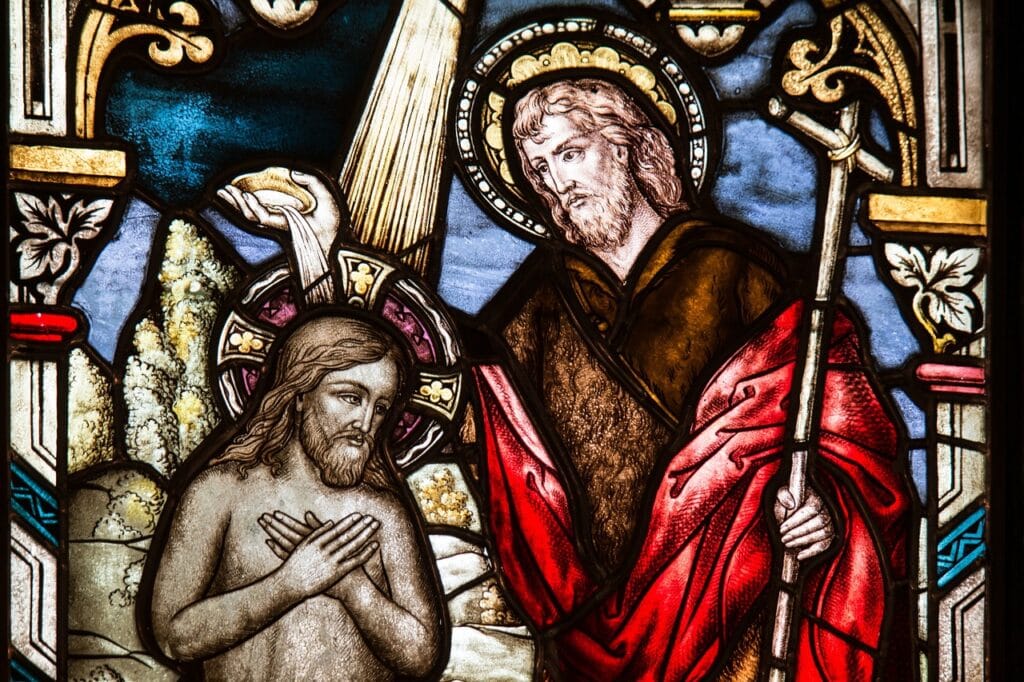John the Baptist holds a crucial place in the Christian faith, revered for his role as a precursor to Jesus Christ. His choice to live in the wilderness has sparked much interest and debate. This article delves into the reasons behind his decision, exploring the spiritual, cultural, and historical contexts of his life.
Historical Context of John the Baptist

To understand why John the Baptist chose the wilderness as his home, we first need to explore the historical context of his life. Born during a time of significant political and religious turmoil, John lived in Judea, which was under Roman occupation. The Jewish people were looking for a Messiah who would liberate them from oppression. In this context, John’s message of repentance and preparation for the coming of the Lord resonated deeply with the people.
John came from a priestly lineage, as his father, Zechariah, served in the temple. However, rather than pursuing a life in the temple or the established religious order, he chose to separate himself from these institutions. His decision can be seen as a protest against the corruption and hypocrisy he perceived within the religious leadership of the time. This context is crucial to understanding his choice of lifestyle.
Spiritual Significance of the Wilderness

The wilderness is often seen as a place of spiritual significance in many cultures and religions, including Judaism. For John the Baptist, the wilderness served as a space for reflection, prayer, and communion with God. By choosing this setting, John was able to distance himself from the distractions and corruption of urban life.
The wilderness allowed him to simplify his existence, focusing solely on his mission. He lived off the land, eating locusts and wild honey, and wore simple clothing made from camel’s hair. This lifestyle was a deliberate choice to embody humility and emphasize the importance of spiritual over material wealth. John’s ascetic lifestyle echoed the call for repentance, urging people to turn away from sin and turn back to God.
Symbolic Representation of the Wilderness

The wilderness is not merely a physical location; it also holds deep symbolic meaning. In the Bible, it represents a place of testing, transformation, and revelation. For instance, Moses encountered God in the wilderness, and the Israelites wandered there for 40 years before entering the Promised Land. By choosing the wilderness, John was aligning himself with these powerful narratives, signifying a new beginning for his people.
John’s call to repentance was not just about individual sin but also about a collective return to faith and righteousness. The wilderness, therefore, symbolizes a place of renewal and restoration. It is where people could come to recognize their shortcomings and seek forgiveness. John’s baptism in the Jordan River was a pivotal act of this renewal, inviting people to cleanse themselves spiritually in preparation for the coming Messiah.
Rejection of Societal Norms

John the Baptist’s decision to live in the wilderness can also be seen as a rejection of societal norms. In a time when religious authorities held significant power, John’s choice to live apart from them signified a challenge to their authority. He did not conform to the expectations of a traditional religious leader. Instead, he took a radical approach, preaching in open spaces and attracting large crowds who were eager to hear his message.
This rejection of societal norms extended beyond his lifestyle to his message. John called out the hypocrisy of the religious elite, urging the people to seek genuine repentance rather than mere adherence to rituals. His boldness in confronting the status quo made him a powerful figure, drawing attention to the need for genuine spiritual renewal.
The Role of Prophecy in John’s Life
John the Baptist is often regarded as a prophet, fulfilling Old Testament prophecies about the coming of a messenger to prepare the way for the Lord. His life in the wilderness aligns with the prophetic tradition of isolation and divine revelation. Prophets like Elijah also spent time in the wilderness, receiving messages from God and calling people to repentance.
By embodying this prophetic role, John established himself as a significant figure in God’s plan. His lifestyle and message prepared the hearts of the people for the arrival of Jesus. This prophetic aspect of his life underscores the importance of his wilderness dwelling, as it was not just a personal choice but a fulfillment of divine purpose.
Impact on Disciples and Followers

John the Baptist’s lifestyle in the wilderness attracted many followers and disciples, some of whom would later become prominent figures in the early Christian church. His example of humility, repentance, and devotion inspired many to embrace a similar path. The wilderness served as a place of teaching and transformation for those who sought to understand his message.
Through his baptisms and preaching, John created a community of believers who were eager to follow God’s will. His influence extended beyond his immediate followers, as his message spread throughout Judea and beyond. The impact of his life in the wilderness paved the way for Jesus’ ministry, as many who had been touched by John’s teachings became eager to hear the message of the Messiah.
Preparation for Jesus’ Ministry

John the Baptist’s time in the wilderness was not just about his own spiritual journey; it was also a preparation for the ministry of Jesus. By proclaiming the coming of the Messiah and calling people to repentance, John set the stage for Jesus’ arrival. His message and baptism were essential in preparing the hearts of the people for the teachings of Christ.
John’s role as a forerunner established a clear connection between the two figures. He openly declared, “I am not the Messiah, but I am sent ahead of him” (John 3:28). This acknowledgment highlights the significance of his wilderness lifestyle, as it was a crucial part of God’s plan to reveal Jesus to the world.
Lessons from John’s Wilderness Experience
John the Baptist’s choice to live in the wilderness offers valuable lessons for us today. His example teaches us the importance of seeking solitude and reflection in our own spiritual journeys. In a world filled with distractions, finding a quiet space to connect with God can lead to deeper understanding and growth.
Moreover, John’s commitment to humility and authenticity serves as a reminder to prioritize our spiritual lives over societal expectations. Living authentically, even in the face of opposition, is a powerful testament to one’s faith. John’s call for repentance and transformation encourages us to examine our own lives and seek genuine change.
Conclusion
John the Baptist’s decision to live in the wilderness was far more than a personal choice; it was a deeply spiritual, prophetic, and transformative act. His life serves as a powerful example of faith, humility, and devotion to God’s purpose. Through his time in the wilderness, John prepared the way for Jesus, calling people to repentance and spiritual renewal. His legacy continues to inspire countless individuals to seek a deeper relationship with God, emphasizing the importance of authenticity and humility in our spiritual journeys.
FAQs
What did John the Baptist wear while living in the wilderness?
John the Baptist wore clothing made from camel’s hair and a leather belt. This attire reflected his ascetic lifestyle and connection to the prophetic tradition, distinguishing him from the religious elite of his time.
Why did people come to see John the Baptist in the wilderness?
People were drawn to John because of his powerful message of repentance and baptism. His call for spiritual renewal resonated with those seeking hope and transformation amidst the political and religious turmoil of the time.
What was the significance of John’s baptism?
John’s baptism symbolized a cleansing of sins and a preparation for the coming Messiah. It was an outward sign of repentance, inviting individuals to renew their commitment to God and embrace a new beginning.
Did John the Baptist have any disciples?
Yes, John the Baptist had disciples who followed him and learned from his teachings. Some of these disciples later became followers of Jesus, illustrating the continuity between John’s ministry and that of Christ.
How did John the Baptist die?
John the Baptist was executed by beheading on the orders of King Herod Antipas. His death came after he publicly criticized Herod’s marriage to Herodias, which was viewed as immoral.







I am truly grateful to the owner of this web site who has shared this enormous paragraph at here.
fantastic put up, very informative. I ponder why the
other experts of this sectolr do not realize this.
You must proceed your writing. I’m confident, you’ve a great readers’ base
already!